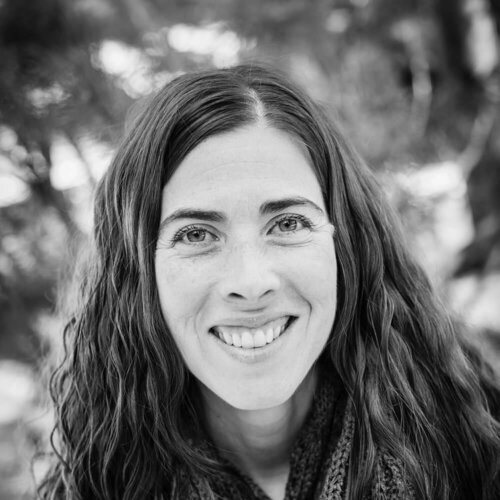Healing the Schism: Yes, But How?
By Dr. Jen Rosner
The Jewish people are increasingly recognizing Christianity as a movement of Gentiles who worship the God of Israel, and the Christian church is waking up to its anti-Jewish past and all that it has lost by effectually divorcing itself from Judaism. These developments are exciting and hopeful, and they raise a whole host of questions. Let me address a few of those questions here.
As I spoke about in my lecture on Messianic Jews and Jewish-Christian Relations, we are living in a remarkable era with regard to the relationship between Judaism and Christianity. The Jewish people are increasingly recognizing Christianity as a movement of Gentiles who worship the God of Israel, and the Christian church is waking up to its anti-Jewish past and all that it has lost by effectually divorcing itself from Judaism.
These developments are exciting and hopeful, and they raise a whole host of questions. Let me address a few of those questions here.
What are the best ways for Christians to be involved in healing the schism between Judaism and Christianity?
- One of the most fundamental implications of our own theological era is a rethinking of what the gospel is and how it gets preached. Is the gospel that the church preaches today anchored in God’s enduring covenant with Israel? What might it look like to increasingly tie these two stories back together? If Jesus’ Jewish context is indispensable for understanding his core message, then the proclamation of the “good news” needs to affirm God’s covenant faithfulness to the people of Israel, upon which God’s faithfulness to the Christian church is built. If our gospel subtly but surely writes Israel out of the narrative, how then can it be built upon Israel’s scriptures? Historically, in one way or another, the church’s gospel has not translated into good news for the people of Israel. In short, much of what is needed today is a rethinking of our core theological categories, perhaps most centrally our gospel message.
- Practically speaking, our theology informs the way we interact with the people who come across our path. If a Jew wanders into a church, are they treated as a potential and desired church member? Is their Jewish identity valued and encouraged? If Christian leaders work to develop relationships with local (or geographically proximate) Messianic Jewish leaders, Jews who are interested in the claims of New Testament can be encouraged to connect with a community of Jewish followers of Jesus. If we believe that God’s covenant with the people of Israel endures, it follows that Jewish identity matters and should not be erased once a Jew chooses to follow the Jewish Messiah.
- If the people of Israel and the body of Messiah are joined together as the people of God, then the concerns of the Jewish community ought to also be the concerns of the Christian church. Currently, we are seeing a rise in global antisemitism as well as a resurgence of extreme stances against the state of Israel and its legitimacy. While Christian leaders need not endorse every action of Israel’s government, a certain fluency regarding key issues and a commitment to advocacy for the Jewish people worldwide demonstrates a concrete commitment to the well-being of God’s covenant people, whether they follow Jesus or not.
How can Christians increasingly become part of these conversations and developments?
There are many wonderful organizations that are doing important, kingdom-centered work. I’d like to highlight just a few of them:
- Yachad BeYeshua: This fellowship of Jewish believers in Jesus represents those from all across the ecclesial spectrum. Yachad BeYeshua offers bi-monthly public webinars, bi-monthly members webinars, a scholars network, and an international community of Jews whose various expressions of faith in Jesus provides both a common framework for connection and a wonderfully diverse gathering among differences. Yachad BeYeshua has a special role for “friends” of the organization who, in general, are not Jewish themselves but who want to be a part of these important conversations and events.
- Society for Post-Supersessionist Theology: Though more on the scholarly, academic end of the spectrum, this organization is committed to rethinking Christian theology in ways that uphold God’s ongoing covenant with the people of Israel and challenging theological positions whereby the church replaces Israel. The events and webinars hosted by the Society offer a wonderful opportunity to hear and interact with leading Jewish and Christian scholars and to become aware of a growing number of resources that represent a new era of Christian theology and scholarship.
- Gateway Center for Israel: An initiative of Gateway Church in Southlake, TX, GFCI is committed to training and equipping Christian leaders to demonstrate a biblically based love for Israel and the Jewish people. Providing a whole host of resources and opportunities, GFCI offers an ideal forum for wading into the kinds of issues and relationships that contribute to healing the schism between Judaism and Christianity.
May God continue to show us how to be faithful in the remarkable era in which we are living, and how to live out—in our unique spheres of influence—the reconciliation between Jew and Gentile made possible through our Messiah.
Dr. Jen Rosner is currently an Affiliate Assistant Professor of Systematic Theology at Fuller Theological Seminary. She also holds academic posts at The King’s University, Azusa Pacific University, and Messianic Jewish Theological Institute.
After completing her PhD at Fuller Theological Seminary, she spent two years living in Jerusalem with her husband, Yonah. They are now living in California, and they have two small children.
Visit Dr. Rosner’s resourceful website, including her books and articles: www.jenrosner.com
